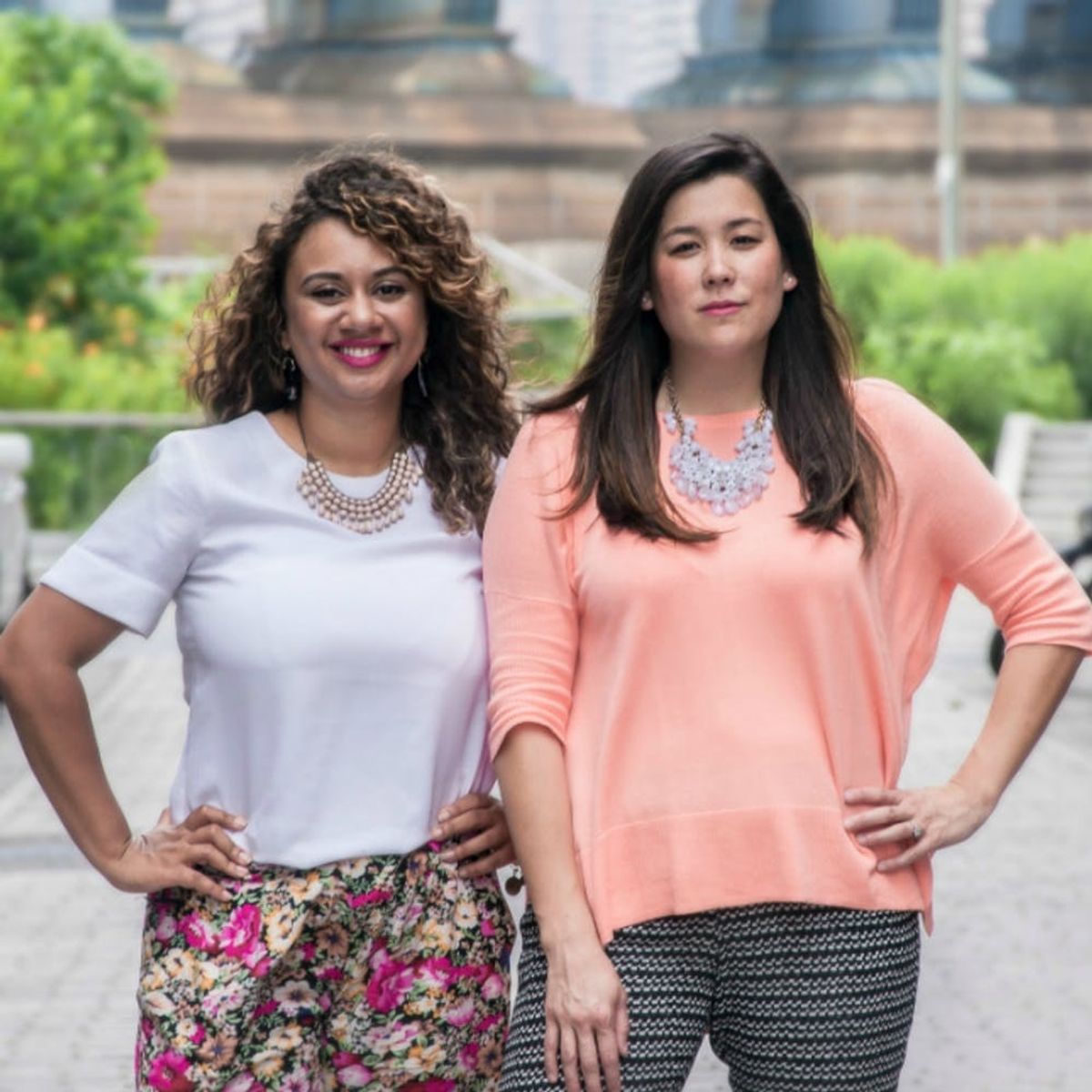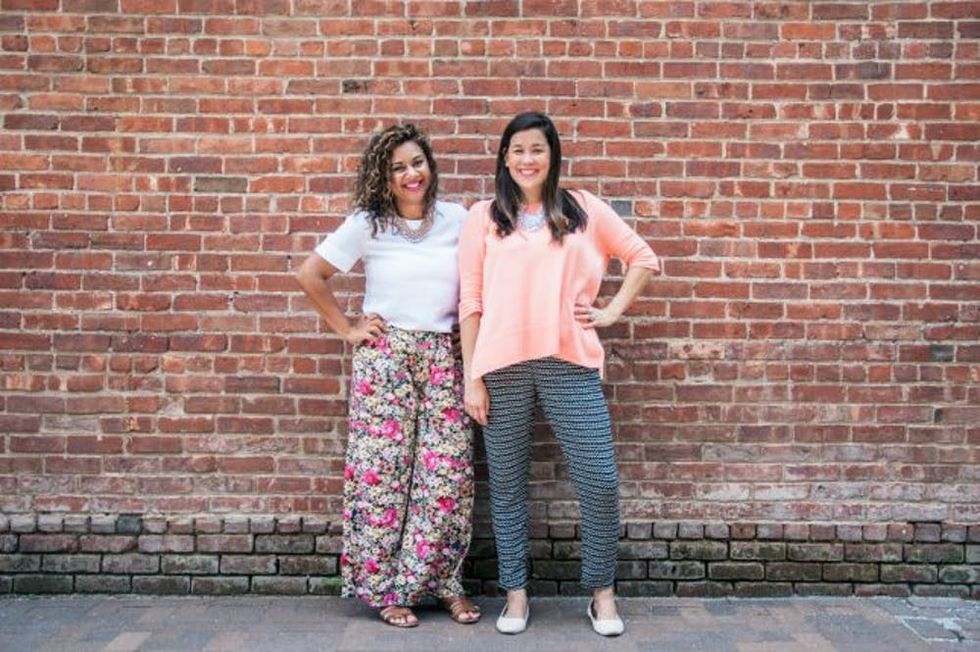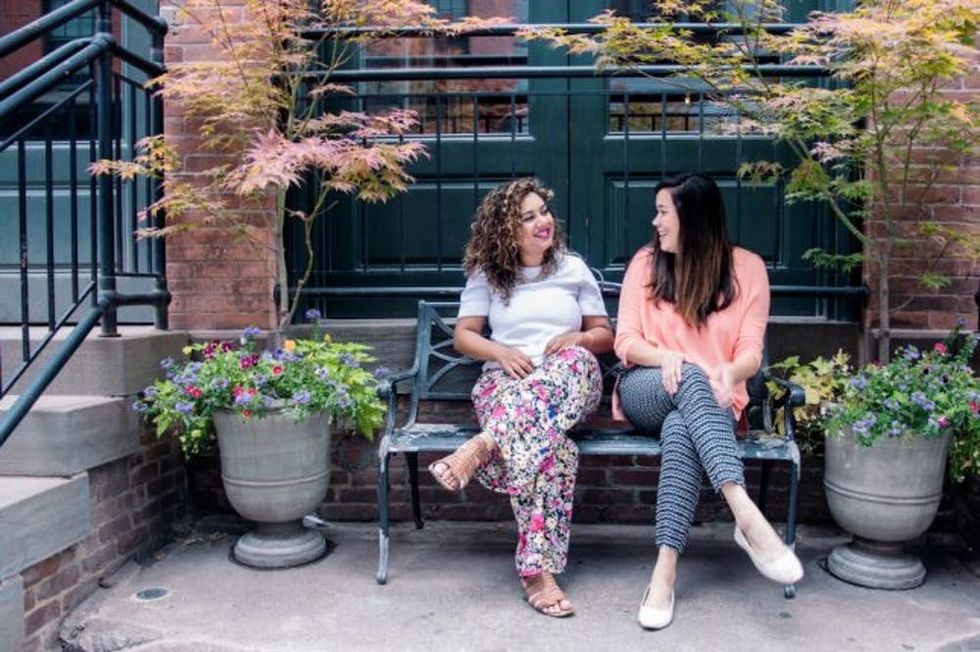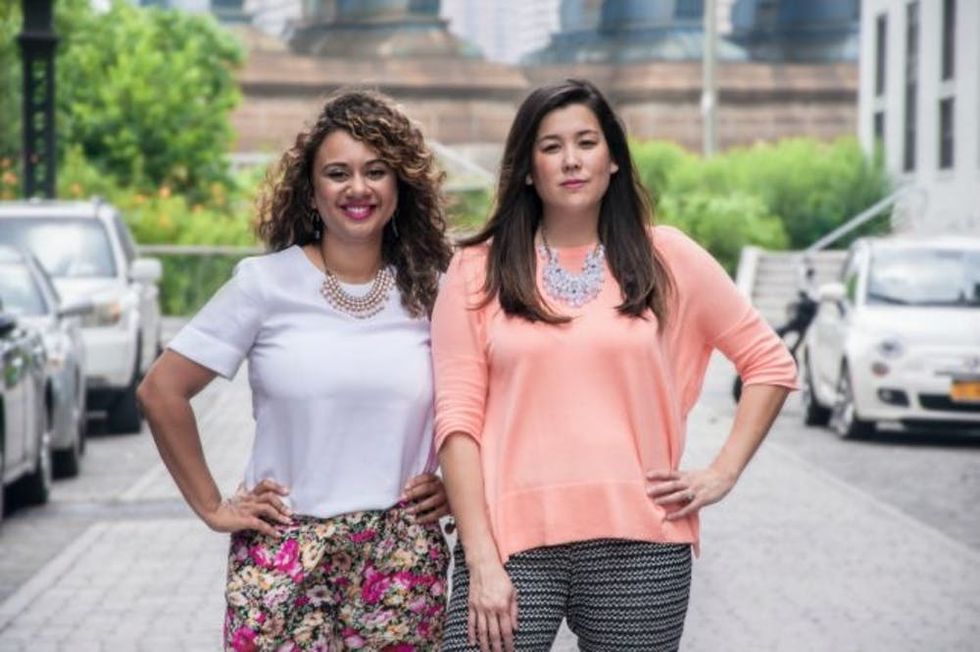These Two Women Started a Business to Improve Your Daily Well-Being

Starting your own business is always a scary decision, but for Naomi Hirabayashi and Marah Lidey, the nerves were definitely worth the end result. As close friends who met on the grind, these two work BFFs quickly learned that leaning on each other for support, advice, and midday pep talks were essential to becoming more confident in both their professional and personal lives.
It was this realization that inspired them to start an ambitious side hustle called Shine, a free messaging app that sends daily, research-backed content related to confidence, happiness, mental health, and productivity to their users as soon as they wake up for the day. Now, Hirabayashi and Lidey’s passion project has grown from a cool side hustle into their full-time gigs, even awarding them a coveted spot as finalists for a L’Oreal Women in Digital Next Generation Award. We recently got the chance to catch up with Hirabayashi and Lidey to learn about their unique path to success, the Impostor Syndrome epidemic, and how other motivated women can enter entrepreneurship with confidence.

B+C: How did you first come up with the idea for Shine?
NH + ML: We met working together over six years ago and instantly became close friends. As coworkers, and as friends, we were able to lean on each other through the highs and lows of our day-to-day — everything from how to be the best managers to talking about personal finance to relationship advice. Through our friendship, we were able to help each other with our wellbeing every single day.
Inspired by our own relationship, and building on our expertise in messaging, we developed the concept behind Shine: to scale the support we provided each other through our first product, a daily messaging experience that helps you work on your well-being.
B+C: You originally started Shine as a side hustle. Can you tell us a little more about how the project evolved from a single great idea into your full-time jobs?
NH + ML: When we started Shine as a side project, the driver was, one, curiosity — we asked ourselves, “Why hasn’t anyone else done this before?” Two, it was core to our background — combining the power of messaging with the support we gave each other. Three, we didn’t see any major brands addressing well-being in a way that really spoke to us or how our friends talked about their own well-being.
All of the main drivers for starting Shine as a side project were validated, and we were completely blown away by the response. Day in and day out we were getting powerful testimonials like “How did this not exist before?” and “You just get me” and “Shine is fundamentally changing the course of my morning.” Shine instantly became bigger than us — it was something we had to build and take to the next level given the organic growth and user feedback.
From there, we used that momentum to raise a pre-seed round and went full-time in April 2016.

B+C: A recent study from the University of Salzburg claims that over 70 percent of workers suffer from Impostor Syndrome. Do you believe this is one of the reasons why millennial women are turning to daily motivation and wellness resources like Shine?
NH + ML: It definitely plays a part. Impostor Syndrome makes you feel like you don’t deserve your success and you’re going to be “found out” (never fun). But what you also face with Impostor Syndrome is something we called the compounding-stressor spiral. You have a feeling (Impostor Syndrome, insecurity, stress) and then you feel stressed about the fact that you feel that way. (Why can’t I just be more confident? Why can’t I just feel more balanced? Why can’t I just own my worth?)
One of the single most impactful things we hear from users is: You made me realized I’m not alone in my daily struggles. Through Shine, we’re helping hundreds of thousands of users every day realize they’re not alone for feeling how they feel. And that is incredibly powerful.
B+C: Congratulations on being chosen as a finalist for a L’Oreal Women in Digital Next Generation Award! Along with being able to pitch your idea to over 500 venture capitalists and L’Oreal executives, programs like this offer mentorship and coaching opportunities from some majorly inspirational women, including GE Vice Chair Beth Comstock and Thrive Media CEO Arianna Huffington. Why do you think it’s so important for successful women to mentor up-and-comers?
NH + ML: Everyone started somewhere. We’re quick to attach ourselves to stories in media that are a perfect build to optimal success — the narrative fallacy. Where true growth comes from on the mentee side is to learn from mentors around the struggle, the grit, and the hustle that helped them build successful companies.

B+C: It’s no big secret that diversity in tech and entrepreneurship is a big problem. As two WOC who have experienced great successes in both of these industries, what advice do you have for other hustlers who are trying to rise above this diversity gap?
NH + ML: The best advice we can give is to have conviction around the problem you’re trying to solve and why you’re the best person to solve that problem because of your experience. Our background is our strength. We know our user — it’s us. And that’s a key part of Shine’s success.
B+C: Finally, as two busy bosses, we can only assume that your typical work day involves a lot of stressful moments. What are a few ways that you practice self-care as hardworking entrepreneurs?
NH + ML: Biking. Lots of weekend biking in beautiful Brooklyn. And we read books that are totally separate from our day-to-day (hint: murder mystery novels — don’t judge).
Would you use a messaging service to spark confidence in the morning? Tweet us by mentioning @BritandCo and check out Shine for more details.
(Photos via Kimberly Li)



















